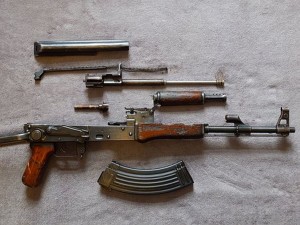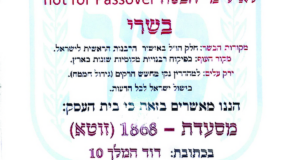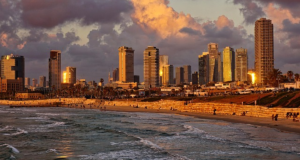“We’re not offering a coherent line here.”
 Ramallah, January 9 – A day after a Palestinian terrorist attack that killed four Israelis, Palestinian leaders have found themselves amidst vehement disagreement over today’s tactic: should they be embracing and lauding the attack and its technique while calling for more of the same, or should they be distancing themselves from the massacre?
Ramallah, January 9 – A day after a Palestinian terrorist attack that killed four Israelis, Palestinian leaders have found themselves amidst vehement disagreement over today’s tactic: should they be embracing and lauding the attack and its technique while calling for more of the same, or should they be distancing themselves from the massacre?
Rival factions within the Palestinian leadership have offered a confused response that involves elements of both approaches, sowing uncertainty in the Palestinian street. While initial reactions in Gaza, Ramallah, Hebron, and elsewhere in Palestinian territory featured celebratory distribution of candy, even fireworks, Israeli Prime Minister Binyamin Netanyahu’s declaration that the perpetrator of the truck-ramming attack was a Daesh supporter prompted a Palestinian announcement this morning that their security forces had arrested nearly two dozen ISIS members. The back-and-forth has left many Palestinians, including those in leadership position, unclear on which of the conflicting attitudes they are supposed to display today.
“So are we for or against Daesh today?” wondered Jibril Rajoub, the Palestinian Minister of Sport. “Am I politicizing and weaponizing sport today as a declared opponent of the Islamic State, and likening Israel to the Islamic State, or am I excusing our own use of Islamic-State-type brutality as a legitimate response to Israeli occupation? I need to know.”
Some of the confusion, explained Rajoub, stems from a timetable sent to all Fatah faction leaders at the start of the month with Monday and Tuesday of this week allotted to pro-ISIS rhetoric, but the announcement of the anti-ISIS arrests this morning caught most of the officials by surprise. “We’re not offering a coherent line here,” he lamented.
Analysts say the phenomenon is reflected in a wider Palestinian ambivalence about the Islamist group. Hamas, the Islamist terrorist organization that runs the Gaza Strip and threatens Abbas’s control of the West Bank, conducts a love-hate relationship with Daesh in the Sinai. Daesh has used Hamas’s smuggling services and Hamas-supplied materiel in its war with Egyptian security forces, while Hamas itself remains wary of the rival Islamist group gaining power in Gaza at its expense.
“The lack of clarity is symptomatic of the Palestinian experience,” observed Sari Nusseibeh, a Palestinian intellectual. “Our sympathies are actually in line with those of the Islamic State, and we take immense pride in their use of terrorist tactics that we honed and developed against Israel: vehicular homicide, suicide bombings, tunnels, what have you. But there’s also a part inside us that resents the greater global attention that gets showered on Daesh as a result, when for decades we were the cause célèbre of the anti-imperialist world. So we sometimes bristle against ISIS, but only in ways calculated to refocus the media on us. It’s about us.”
Please support our work through Patreon.



